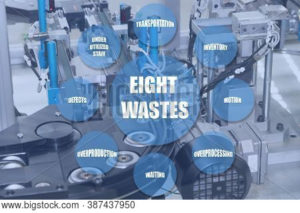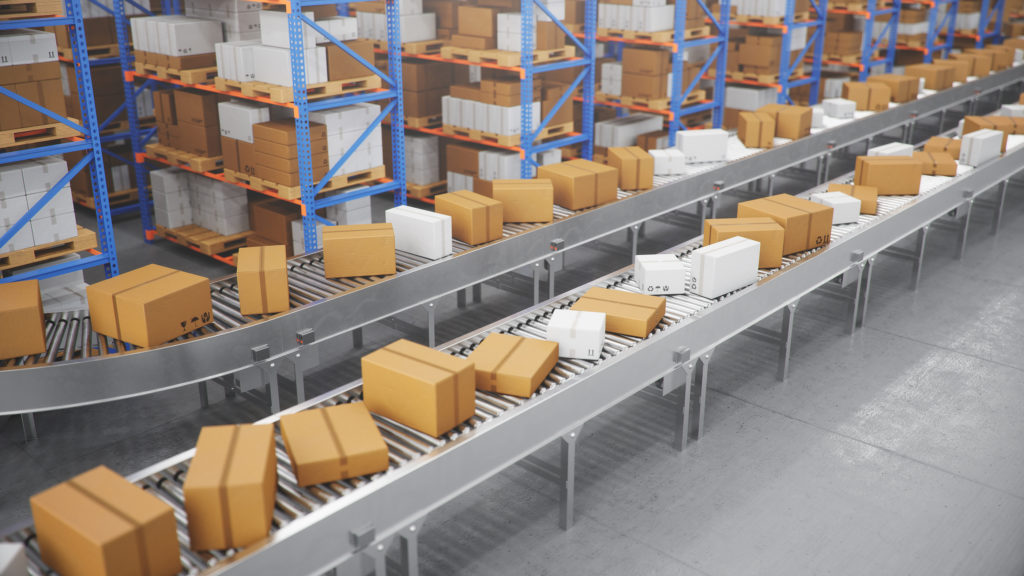Industrial engineers evaluate and develop efficient systems that integrate workers, machines, materials, information, and energy to streamline production or other processes. To maximize efficiency, industrial engineers study product requirements carefully and then design manufacturing and information systems to meet those requirements with the help of mathematical methods and models. They might convert a car production line to a lean manufacturing system. Or, they might study and present options to reduce the length of waiting lines in a theme part. Many industrial engineers move into management positions because the work is closely related to the work of managers.
Depending on their area of focus, they might observe a current facility and watch workers assembling parts, or evaluate inventory control, energy consumption at various hours of the day, or production timelines. They are both problem solvers and developers of systems.
Two fields that are often confused are industrial engineering and manufacturing engineering. Manufacturing engineers are more involved with determining the best equipment and machinery required to create a product or system, while industrial engineers will focus on how people and machines work together, and seek to streamline procedures to increase efficiency.
What makes it unique?
Industrial engineers seek efficient ways for people and equipment to work together. They continually seek ways to eliminate wastefulness and therefore save time, money, effort or all of these factors. In some ways, an industrial engineer can mold their career to match their interests in terms of which industry or aspect of people/machine interaction they are most interested in maximizing.
 Degree Connections
Degree Connections
The following are examples of some accredited degrees leading to a career in Industrial engineering:
- Industrial Engineering
- Industrial Engineering Technology
- Engineering Management
- Process Engineering
- Health and Safety Engineering
- Systems Engineering
Search our global database of accredited engineering programs.
Want to learn more?
Click on the blue tabs to explore the field in more detail and learn about preparation and employment, the green tabs to be inspired by people working in industrial engineering and how they impact the world, and the orange tabs for ideas on how to learn more and you can get involved with activities, camps, and competitions!
Explore
A Day in the Life

bigstock.com/FyeNaparat
Industrial engineers work either in offices or in the settings they are charged with trying to improve. For example, when solving problems, industrial engineers may be in an office at a computer where they analyze data that they or others have collected. Industrial engineers must work well on teams because they need help from others to collect information about problems and to implement solutions. They might find themselves traveling frequently to observe processes and consult in different work settings.
An average work week is generally 40 hours in this field, with extra time needed if there is a deadline or a new product or service launch.
Some of the tasks they might work on include:
- Review production schedules, engineering specifications, process flows, and other information to understand methods that are applied and activities that take place in manufacturing and services
- Figure out how to manufacture parts or products, or deliver services, with maximum efficiency
- Develop management control systems to make financial planning and cost analysis more efficient
- Enact quality control procedures to resolve production problems or minimize costs
- Design control systems to coordinate activities and production planning in order to ensure that products meet quality standards
- Confer with clients about product specifications, vendors about purchases, management personnel about manufacturing capabilities, and staff about the status of projects
Historical Snapshot: Shipping Efficiency and Technology

bigstock.com/Tiko Gaspario
Efficient shipping of products to customers is an area of focus for industrial engineers. Depending on the product, ground transportation might be required, or perhaps a temperature controlled environment, or a product might need to arrive overnight.
Industrial engineers review product requirements and anticipated customer expectations and analyze options to determine a system that most efficiently gets the product safely into the hands of the customer.
This might impact the design of shipping containers, internal packaging, or even using dry ice in shipping. It will also include determining which shipping company is most reliable and cost effective for the size and weight of the product. Shipping systems are frequently reviewed to make sure they are meeting anticipated performance outcomes and budget goals, and are revised as needed. For example, if a product has a larger percentage of breakage issues using one shipping company, they might test using alternate shippers or different packaging.
Managing and locating shipped packages is an ongoing challenge for almost any business. Tracking numbers, bar scans and other systems have been used to identify where a product is, or how far along it is in the shipping process. A bar code could be scanned to feed information back to a database to alert both shipper and receiver as to the status of a delivery.
For more valuable items or time critical packages (such as the delivery of an organ due for a transplant surgery) RFID (radio-frequency identification) tags provide real time location tracking. Unlike a barcode, the tag does not need to be within the line of sight of the reader, so it may be embedded in the tracked object.
Currently there are active and passive RFID tags…active ones have their own battery system and can transmit information, while passive ones are powered by the radio frequency energy transmitted from RFID readers/antennas. RFID tags can be integrated with sensors and GPS technology to provide ongoing information about the environment the product is in…especially important if a product needs to be within a certain temperature or humidity range. A delivery of frozen chicken, for example, might spoil if it reached a high temperature at some point during transport.
Industrial engineers have many options to consider when planning the most efficient way to send a product! In this example, it would be inefficient for a person to have to scan each package at every point along the way, so using RFID technology where economically feasible would streamline production and likely reduce costs.
Find out more:
Industries and Employment

bigstock.com/Rido81
Because they are not as specialized as other engineers, industrial engineers are employed in a wide range of industries, including major manufacturing industries, consulting and engineering services, and research and development firms. This versatility arises from the fact that these engineers focus on reducing internal costs, making their work valuable for many industries.
The following is just a sample of some companies, in addition to government agencies, which employ industrial engineers:
Preparation and Degrees
For most engineering careers:
- a bachelor’s degree is required

bigstock.com/Lungmai
- a master’s degree may be recommended for those specializing or interested in management
- students may also start with a related associate degree and then move on to a bachelor’s when they have settled on a degree path.
- many students are required to participate in a co-op program while at university to gain real world experience in their chosen field.
- education doesn’t really stop…engineers need to stay current as technology changes and materials and processes improve over time.
- many professional societies offer certificates and coursework to support continuing education for their members.
At the undergraduate level, examples of courses for industrial engineers will study workplace design, advanced modeling, production scheduling, inventory control, and data analysis. They will learn to measure work cycle efficiency, cost of production, machine failure rates, and supply and demand as it relates to production cycles.
It is important to select an engineering degree that has been accredited to meet basic standards. Find out more and browse TryEngineering’s global database of accredited engineering and computing programs.
- a bachelor’s degree is required
Be Inspired
Amazing Engineers!
One of the best ways to explore what it might be like to work in industrial engineering is to learn about people who contributed historically or are currently working in the field.
- Lillian Evelyn Moller Gilbreth was an American psychologist, industrial engineer, consultant, and educator who was an early pioneer in applying psychology business efficiency techniques.
-
Richard Muther was an American consulting engineer, faculty member at MIT, and author. He developed fundamental techniques used in plant layout, material handling, and other aspects of industrial engineering.
- Taiichi Ohno was a Japanese Industrial engineer and businessman. He is considered to be the father of the Toyota Production System (which he describes in the video to the right), which inspired the idea of “lean manufacturing.”
Global Impact: Lean Manufacturing
Lean manufacturing is a production method derived from Toyota’s 1930 operating model “The Toyota Way.” The Toyota Way is a set of principles and behaviors that underlie the Toyota Motor Corporation’s managerial approach and production system. It revolutionized production and accurately defined some of the goals of industrial engineering.
However there are many contributors to the original concept and it has been adapted over the years to apply to general management, and other processes not directly related to physical production.
 The approach is really streamlining any process and globally this has impacted production and management in many industries.
The approach is really streamlining any process and globally this has impacted production and management in many industries.The system identifies seven wastes (or muda in Japanese):
- Delay, waiting or time spent in a queue with no value being added
- Producing more than you need
- Over processing or undertaking non-value added activity
- Transportation
- Unnecessary movement or motion
- Inventory
- Defects in the Product
Find out more:
Get Involved
Keep Learning
Dig deeper into topics related to industrial engineering that interest you!

Explore:
- Industrial Engineering
- IISE: What Industrial and Systems Engineers Do
- Find Inspiration in these Success Stories by Industrial Engineers
- TryEngineering News Blog
Watch:
- Lillian Gilbreth: First Lady of Engineering (Purdue Industrial Engineering)
- IISE: What are you waiting for? Industrial Engineering!
Try it Out:
- Play some games that involve industrial engineering
- Try one of the TryEngineering lessons that focus on industrial engineering:
Competitions and Events
Clubs, competitions, and camps are some of the best ways to explore a career path and put your skills to the test in a friendly-competitive environment.

Clubs:
- Many schools have math clubs or opportunities for students to get together and work on challenges that provide a good basis for any engineering degree. Math competitions incorporate some of the skills needed by industrial engineers when analyzing data or determining statistical forecasts.
Competitions:
- Society for Health Systems Student Simulation Competition: students solve a “real-world” healthcare situational case study using simulation software
- Industrial Engineering and Operations Management Society Student Competitions include simulations, supply chain and logistics competitions and others, timed with their annual conference.
- Institute of Industrial and Systems Engineers Regional Competitions: various competitions that allow the winners to present at the IISE Annual Conference
Camps:
- TryEngineering Summer Institute, US: Attend the TryEngineering Summer Institute to further your core engineering skills.
Many universities offer summer engineering experiences. Reach out to your local university’s engineering department to see what they offer.
Local Connections
Did you know you can explore industrial engineering in your community? Consider the lunch line at your school, or at a local buffet, or cafeteria in a workplace:
- How is the available food organized? By category (salads vs. desserts?)? Why?
- What equipment is included to keep the temperature optimized for hot and cold foods?

bigstock.com/monkeybusinessimages
- What is the pathway customers are encouraged to travel from the initial line to checking out? Why do you think it was set up this way?
- How do they determine how much of each item to provide on each day? Does this change day to day? Why might it?
- How many people work behind the counter, serving food? How many people work elsewhere preparing the food? Do you think there are enough employees? Why or why not?
- What happens to waste? Is there a system for disposal of food? What about recycling?
- What staff members do you think helped create this system? What expertise did they bring to solve the challenge?
Find out more:
Groups and Associations
Be sure to reach out to professional societies focused on industrial engineering where you live. Not all will offer membership to pre-university students, but most offer groups for university students, and certainly offer online resources to help you explore the field.
For example, the European Students of Industrial Engineering and Management offers mentoring opportunities, workshops, conferences, and other resources for European students.

Some examples of groups focusing on industrial engineering:
- American Society for Quality
- Association for Manufacturing Technology
- Association for Facilities Engineering (AFE)
- European Students of Industrial Engineering and Management
- Institute of Industrial and Systems Engineers
- Society of Manufacturing Engineers
- IEEE Technology and Engineering Management Society
- IEEE Systems, Man, and Cybernetics Society
- IEEE Control Systems Society
- Indian Institution of Industrial Engineering
Some resources on this page are provided or adapted from the US Bureau of Labor Statistics and the Career Cornerstone Center.



